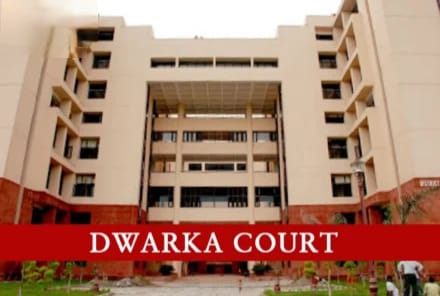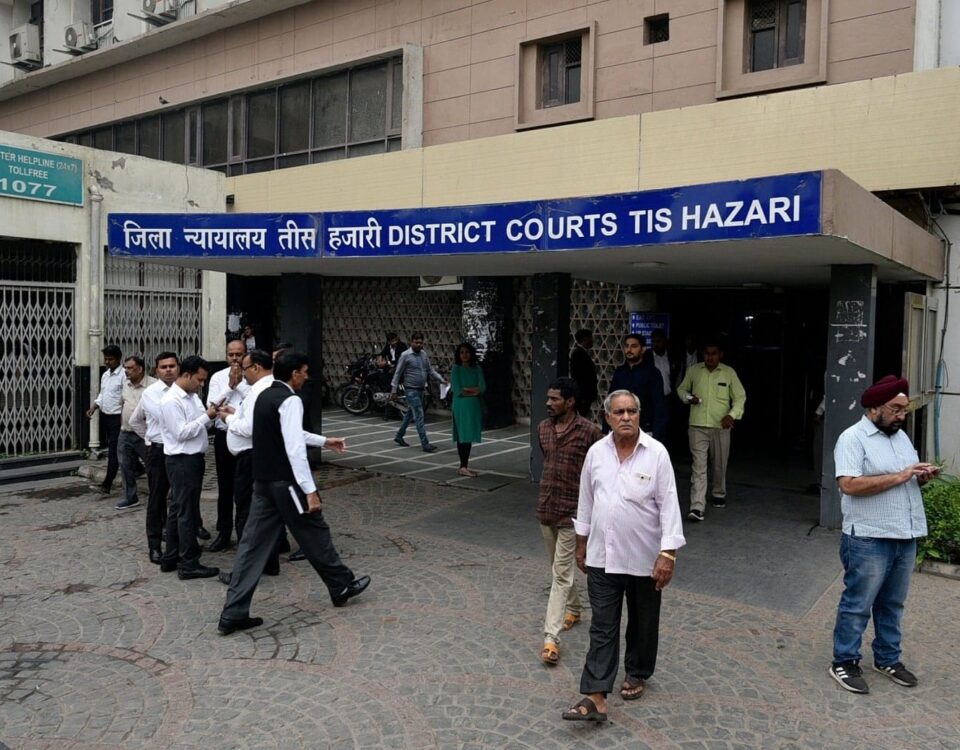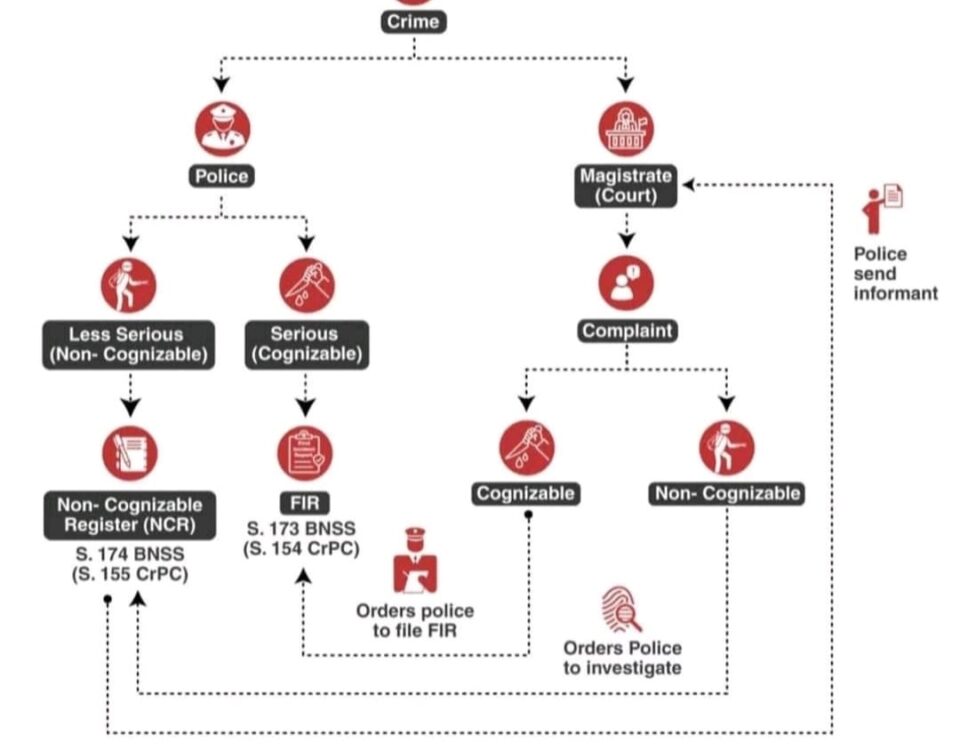Desertion-Based Divorce in Delhi NCR
Desertion is a recognized ground for divorce under Indian law, defined as the intentional abandonment of one spouse by the other without any reasonable cause, consent, or intention to return. Under Section 13(1)(ib) of the Hindu Marriage Act, 1955, a spouse can file for divorce on the grounds of desertion in family courts across Delhi NCR, including Noida, Ghaziabad, Faridabad, and Gurugram. To establish desertion as a ground for divorce, the petitioner must prove that the other spouse has deliberately left the marital home with no intention of resuming cohabitation for a continuous period of at least two years before the filing of the divorce petition. The burden of proof lies on the deserted spouse, who must demonstrate that the deserting spouse willfully neglected marital obligations and displayed a clear intention to end the marital relationship. This requires strong evidence, such as witness testimonies, written communications, electronic messages, and documented attempts to reconcile that were ignored or rejected by the deserting spouse. In some cases, the deserting spouse may present valid defenses against the claim of desertion, including establishing that the separation was due to a reasonable cause, such as domestic violence, cruelty, or other forms of harassment that compelled them to leave the marital home. Another defense is proving that the separation was mutually agreed upon or that the petitioner consented to the separation. Courts in Delhi NCR closely examine the circumstances surrounding the separation to determine whether it was a case of genuine desertion or if there were justifiable reasons for the spouse’s departure. Given the complexities involved in proving desertion, it is crucial to consult an experienced divorce lawyer specializing in Delhi NCR cases. A skilled legal professional can effectively gather evidence, present compelling arguments, and counter defenses raised by the opposing party to ensure a favorable outcome. At Top Divorce Lawyer, we provide comprehensive legal assistance in desertion-based divorce cases, offering strategic guidance to protect your rights and achieve the best possible resolution in family courts across Delhi NCR.

Why Choose TopDivorceLawyer
- Experienced Lawyers: Skilled in handling mutual divorce cases with expertise under the Hindu Marriage Act.
- Quick and Efficient Process: We ensure a hassle-free, fast divorce process to save your time and energy.
- Confidentiality Assured: Your privacy is our priority; all your personal and legal details remain secure with us.
- Affordable and Transparent Fees: Clear, affordable pricing with no hidden costs—quality legal services within your budget.
- Personalized Legal Solutions: Tailored advice and solutions suited to your specific needs for a smooth divorce experience.
- End-to-End Assistance: From petition filing to final decree, we assist you through every step with care.
Proving Desertion in Divorce Cases in Delhi NCR
Proving desertion as a ground for divorce in Delhi NCR requires substantial evidence to establish that the abandoning spouse intentionally left the marital home without any reasonable cause or consent and displayed a clear intention to permanently sever the marital relationship. The petitioner must present convincing proof that the desertion lasted for a continuous period of at least two years before filing the divorce petition. Evidence in such cases can include witness statements from family members, neighbors, or friends who can testify about the abandonment and the circumstances leading to it. Additionally, written communications, text messages, emails, or any records indicating the refusal to return to the marital home can significantly strengthen the case. The court also considers evidence of reconciliation efforts made by the deserted spouse, such as letters or messages requesting the spouse to return, which were either ignored or rejected. It is crucial to demonstrate that the deserting spouse had no reasonable cause for leaving, as allegations of cruelty, violence, or harassment can serve as strong defenses against desertion claims. Therefore, having an experienced divorce lawyer in Delhi NCR is vital to effectively present evidence, counter defenses, and ensure a favorable outcome in desertion-based divorce cases.
Role of Evidence in Desertion-Based Divorce Cases in Delhi NCR
In Delhi NCR, evidence plays a crucial role in establishing or contesting desertion as a ground for divorce under Section 13(1)(ib) of the Hindu Marriage Act, 1955. The petitioner must demonstrate that the other spouse willfully abandoned the marital home without reasonable cause, consent, or intention to return, and that such abandonment continued for at least two years. To substantiate these claims, the petitioner must present credible evidence that establishes the intent to desert and the duration of separation. This evidence can include witness statements from family members, friends, or neighbors who can testify about the circumstances surrounding the separation and the behavior of the deserting spouse. Written communications, such as letters, emails, text messages, or social media interactions, can also serve as crucial evidence, especially if they indicate the intention to leave permanently or a refusal to return. Additionally, financial records showing that the deserting spouse stopped contributing to household expenses can further substantiate the claim of abandonment. The petitioner may also provide documentation of attempts to reconcile, such as letters or messages urging the spouse to return, which were ignored or rejected. These reconciliation attempts demonstrate the deserted spouse’s efforts to salvage the marriage and highlight the deserting spouse’s unwillingness to resume cohabitation. Medical records, police complaints, or legal notices can also be used to establish that the separation was without reasonable cause. The accused spouse can present counter-evidence to refute the desertion claim. This may include proof of a valid reason for leaving, such as domestic violence or cruelty. They may also present evidence showing mutual consent to the separation or a reconciliation attempt that was prevented by the petitioner. In such cases, the burden of proof is on the petitioner to establish that the separation was intentional, unjustified, and without consent. Given the complexity and high standard of proof in desertion-based divorce cases, having a knowledgeable divorce lawyer in Delhi NCR is crucial to effectively gather and present evidence that can impact the outcome.
Legal Defenses Against Desertion Claims in Delhi NCR
In Delhi NCR, defending against desertion claims in divorce cases involves presenting valid and compelling reasons for the separation. The accused spouse can counter a desertion allegation by establishing that the departure was justified, mutual, or not intended to be permanent. One of the primary defenses against a desertion claim is reasonable cause, where the accused spouse must demonstrate that the separation was a necessary response to circumstances such as domestic violence, cruelty, or persistent harassment. For instance, if the spouse left the marital home due to physical abuse or emotional torment, they can present medical reports, police complaints, or witness statements as evidence to justify their departure. Courts in Delhi NCR carefully assess such claims to determine whether the accused spouse was compelled to leave due to unbearable circumstances rather than an intentional act of abandonment. Another critical defense is proving that the separation was consensual or mutually agreed upon. If both spouses agreed to live separately for personal or financial reasons, it cannot be considered desertion under Section 13(1)(ib) of the Hindu Marriage Act, 1955. Written agreements, email exchanges, or any documented communication regarding mutual consent to separate can effectively counter desertion claims. Additionally, if the petitioner consented to the separation or encouraged the accused spouse to leave, the desertion claim may not hold ground. The accused spouse can also present the defense of attempts to reconcile, showing that they made genuine efforts to resume cohabitation but were refused by the petitioner. Evidence such as messages, phone call records, or third-party mediators' statements can substantiate the claim that the accused spouse had a genuine intention to return but was prevented from doing so by the petitioner. Lastly, the accused spouse may argue that the separation did not meet the two-year requirement under the Hindu Marriage Act. If the petitioner prematurely filed the divorce petition without completing the mandatory two-year period of separation, the claim of desertion may be dismissed. Given the complex nature of desertion cases and the various defenses available, it is crucial for the accused spouse to seek the assistance of a skilled divorce lawyer in Delhi NCR. An experienced lawyer can effectively analyze the circumstances of the case, gather relevant evidence, and present a compelling defense to safeguard the client’s rights and interests in court.

Home Page

Contact Us
Impact of Desertion on Divorce Settlements in Delhi NCR
In Delhi NCR, desertion can significantly impact divorce settlements, particularly in matters related to alimony, property division, and child custody. When a spouse successfully establishes desertion as the ground for divorce under Section 13(1)(ib) of the Hindu Marriage Act, 1955, it can influence the court’s decision on financial support and asset distribution. Courts may consider the deserting spouse’s conduct as a factor in determining alimony, potentially reducing or denying maintenance if the spouse is found guilty of intentional abandonment without reasonable cause. Additionally, if the deserted spouse has been financially burdened due to the other spouse’s absence, the court may award higher compensation to balance the economic disparity. In property division, the deserted spouse may claim a larger share, especially if they have been solely managing household expenses and debts during the period of desertion. Child custody decisions may also be affected, as the court may question the suitability of the deserting spouse as a primary caregiver, given their failure to fulfill marital and parental responsibilities. However, if the accused spouse can prove a valid reason for leaving, such as domestic violence or cruelty, the court may reassess the claims and adjust the settlement accordingly. Given the complexities involved, it is crucial for both parties to seek legal guidance from an experienced divorce lawyer in Delhi NCR to effectively present evidence, protect their rights, and secure a fair settlement.
Contact the Best Divorce Lawyer in Delhi NCR
Are you facing a complex divorce case involving desertion, alimony disputes, or child custody battles in Delhi NCR? Get expert legal guidance from a trusted and experienced divorce lawyer who understands the intricacies of family law in Noida, Ghaziabad, and surrounding areas. At Top Divorce Lawyer, we provide comprehensive legal support tailored to your specific needs, ensuring that your rights and interests are fully protected throughout the legal process. Whether you need assistance with filing for divorce, defending against false allegations, or negotiating a fair settlement, our dedicated legal team is here to help. We handle cases with utmost confidentiality, compassion, and a results-driven approach. Contact us today for a detailed consultation to discuss your case and explore the best legal strategies to achieve a favorable outcome. Reach out via phone, email, or by visiting our office to get started with trusted legal support in Delhi NCR.








